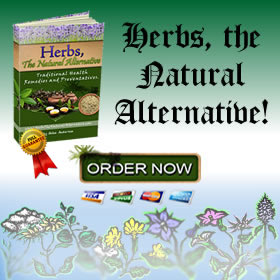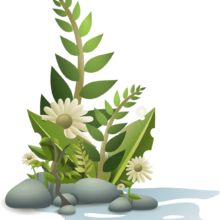A Beginner’s Guide to Growing Medicinal Herbs
Are you interested in growing your own medicinal herbs? Whether you’re looking to expand your herbal medicine knowledge or simply want to add some natural remedies to your garden, growing your own medicinal herbs can be a rewarding and practical endeavor. In this article, we will guide you through the basics of growing medicinal herbs, giving you the tools and knowledge you need to get started.
Growing medicinal herbs can provide you with a steady supply of natural remedies that can benefit your overall health and well-being. From soothing teas to healing salves, the possibilities are endless. In this guide, we will discuss the key factors to consider when growing medicinal herbs, such as choosing the right herbs for your needs, preparing the soil, and providing the right growing conditions. We will also delve into specific herbs and their medicinal properties, giving you a comprehensive understanding of their uses and benefits. If you’re ready to embark on a journey of self-sufficiency and natural healing, keep reading for a beginner’s guide to growing medicinal herbs.
A Beginner’s Guide to Growing Medicinal Herbs
Have you ever considered growing your own medicinal herbs? Not only can it be a rewarding and fulfilling hobby, but it also allows you to take control of your health and well-being. In this beginner’s guide, we will explore the benefits of growing medicinal herbs, how to select the right herbs, preparing the growing space, starting from seeds or seedlings, proper watering and irrigation techniques, nurturing healthy growth, harvesting and handling medicinal herbs, exploring their medicinal uses, contributing to sustainability, and embracing the journey of growing medicinal herbs.
Benefits of Growing Medicinal Herbs
Enhancing Health and Wellness
Growing your own medicinal herbs gives you immediate access to fresh, organic, and chemical-free plants. You can harvest them as needed, ensuring optimal potency and quality. The act of nurturing and caring for these plants can also have a positive impact on your mental well-being, reducing stress and promoting a sense of calm and connection to nature.
Reducing Dependency on Pharmaceuticals
By growing medicinal herbs, you have the opportunity to explore natural alternatives to synthetic drugs. Many common ailments can be addressed through herbal remedies. With proper research and guidance, you can learn which herbs are effective for particular conditions and integrate them into your healthcare routine. This can reduce your reliance on pharmaceutical medications and their potential side effects.
Sustainability and Cost-Effectiveness
Growing your own medicinal herbs promotes sustainability. Instead of relying on mass-produced herbs that may have been exposed to harmful chemicals or have traveled long distances, you can cultivate your own in an eco-friendly manner. This not only reduces your carbon footprint but also saves you money in the long run. Once established, these hardy plants require minimal maintenance and can provide a continuous supply of fresh herbs.
Selecting Medicinal Herbs to Grow
Before starting your medicinal herb garden, it is essential to research and choose the right herbs for your specific needs and growing conditions.
Researching and Choosing Suitable Herbs
Begin by identifying your health concerns or areas you want to focus on. Are you looking to improve digestion, boost your immune system, or reduce stress? Once you have a list of herbs that address your needs, research each herb’s growing requirements, such as sunlight, soil type, and water needs. Cross-reference these requirements with your climate to ensure compatibility.
Considering Climate and Growing Conditions
Different medicinal herbs thrive in different climates. Some herbs, like lavender and rosemary, prefer sunny and dry conditions, while others, such as mint and chamomile, prefer partial shade and moisture. Ensure that the herbs you choose are suitable for your climate and can be cultivated successfully in your area.
Prioritizing High-Demand and Versatile Herbs
When selecting medicinal herbs, consider the herbs that are in high demand and widely used. Popular herbs like chamomile, lavender, echinacea, and peppermint can be versatile additions to your garden. These herbs have a wide range of medicinal applications and can be used in teas, infusions, tinctures, or as ingredients in natural skincare products.
Preparing the Growing Space
Once you have chosen your medicinal herbs, it’s time to prepare the growing space. The selection of the growing space will depend on your circumstances and available options.
Choosing Between Indoor and Outdoor Growing
For those with limited outdoor space or living in colder climates, indoor gardening can be a great alternative. Indoor growing allows you to control the conditions, such as temperature and light intensity, and extend the growing season. If you have a backyard or balcony, outdoor gardening provides more space and natural sunlight.
Optimizing Sunlight and Shelter
Medicinal herbs, like most plants, require adequate sunlight to thrive. Place your herb garden in an area that receives at least 6-8 hours of direct sunlight per day. If you are growing indoors, you can use grow lights to supplement natural light. Additionally, provide shelter from strong winds that may damage delicate herbs.
Soil Preparation and Composting
Before planting your medicinal herbs, prepare the soil by removing any weeds or debris. Most herbs prefer well-draining soil rich in organic matter. Add compost or well-rotted manure to improve soil fertility. Consider performing a soil test to determine the pH level and adjust it if necessary. Most medicinal herbs prefer slightly acidic to neutral soil.
Starting from Seeds or Seedlings
Now that your growing space is ready, you can choose to start your medicinal herb garden from seeds or seedlings. Each method has its advantages and considerations.
Understanding Seed Germination
Starting from seeds can be more cost-effective and offers a wider variety of herb options. However, germinating seeds can be more challenging and time-consuming. Ensure that you research the specific germination requirements for each herb and follow the instructions carefully. Some herbs may require scarification or soaking before planting for better germination rates.
Purchasing Quality Seeds or Seedlings
Whether you choose to start from seeds or purchase seedlings, it is crucial to source high-quality and organic material. Look for reputable suppliers or local nurseries that specialize in medicinal herbs. Organic seeds or seedlings are preferable as they reduce the risk of exposure to pesticides and other harmful chemicals.
Sowing and Transplanting Techniques
When sowing seeds, follow the instructions on the seed packet regarding planting depth, spacing, and watering. Transplant seedlings into the prepared soil, ensuring they have enough space to grow. Water gently after transplanting to settle the soil around the roots. Mulching around the seedlings can help retain moisture and suppress weed growth.
Proper Watering and Irrigation
Proper watering is crucial for the health and growth of your medicinal herbs. Each herb has specific water requirements, so it’s essential to understand them and adapt accordingly.
Determining Watering Requirements
While some herbs prefer drier conditions, others require more moisture. Research the specific watering needs for each herb and adjust your watering routine accordingly. Generally, it is better to water deeply and infrequently to encourage deep root growth. Monitor the moisture level of the soil with your finger or a moisture meter to prevent over or under watering.
Using Efficient Irrigation Methods
Watering by hand with a watering can or hose is a simple and effective method for small herb gardens. It allows you to control the amount and direction of water. Drip irrigation or soaker hoses are efficient options, especially for larger gardens. These methods deliver water directly to the soil’s root zone, minimizing evaporation and reducing the risk of fungal diseases.
Preventing Overwatering and Drainage Issues
Overwatering can lead to root rot and other fungal diseases, so it’s crucial to ensure proper drainage. If your soil is heavy or clay-based, consider adding organic matter or creating raised beds to improve drainage. Additionally, avoid watering in the evening, as wet foliage can promote the growth of molds and fungi. Watering earlier in the day allows time for the leaves to dry before nightfall.
Nurturing Healthy Growth
To ensure healthy growth and optimal yields, you must provide proper care and attention to your medicinal herbs.
Fertilization and Nutrient Balance
Most medicinal herbs are not heavy feeders and don’t require excessive fertilization. Organic matter, such as compost or well-rotted manure, can provide the necessary nutrients. Apply a thin layer of compost around the base of the herbs annually. Avoid excessive use of chemical fertilizers, as they can disrupt the delicate balance of the soil ecosystem.
Pruning, Trimming, and Promoting Bushy Growth
Regular pruning and trimming are essential for maintaining the health and shape of your medicinal herbs. Pruning encourages bushy growth and prevents herbs from becoming leggy or sprawling. Remove any dead or damaged leaves or stems to promote airflow and reduce the risk of diseases. Harvesting herbs regularly also helps to promote new growth.
Protecting Against Pests and Diseases
Like any plants, medicinal herbs can be susceptible to pests and diseases. Monitor your herb garden regularly for signs of pests, such as aphids or caterpillars, and take appropriate action if necessary. Companion planting with herbs like basil or marigold can repel pests. Also, ensure proper spacing between plants to allow for good airflow, which reduces the risk of fungal diseases.
Harvesting and Handling Medicinal Herbs
The timing and techniques for harvesting medicinal herbs are crucial to ensure peak potency and quality.
Recognizing Optimal Harvesting Time
Each herb has its own optimal harvesting time, usually when the leaves or flowers are at their peak potency. Research the specific harvesting requirements for each herb and familiarize yourself with the signs to look for, such as fully opened flowers or fragrant foliage. Harvest herbs early in the morning when the oils and moisture are highest.
Proper Techniques for Harvesting and Drying
When harvesting medicinal herbs, use clean and sharp pruners or scissors to avoid damaging the plants. Cut about one-third of the plant, leaving enough foliage for it to recover and continue growing. If you are drying the herbs, gather small bunches and tie them with twine or rubber bands. Hang them upside down in a warm, well-ventilated area away from direct sunlight to dry.
Storage and Preservation Guidelines
Once your medicinal herbs are dried, store them in airtight containers, away from light, heat, and moisture. Glass jars with tight-fitting lids or paper bags are ideal for storing dried herbs. Label each container with the herb’s name and the date of harvest to ensure freshness and potency. Stored properly, dried herbs can retain their medicinal properties for up to a year.
Exploring Medicinal Uses and Applications
One of the most exciting aspects of growing medicinal herbs is exploring their various medicinal uses and applications.
Researching Medicinal Properties and Benefits
Take the time to research and understand the medicinal properties and benefits of each herb you are growing. Dig deeper into herbal medicine books or reliable online sources to learn about traditional uses, dosage, and any potential interactions or contraindications. This knowledge will help you make informed decisions and better utilize your harvested herbs.
Creating Natural Remedies and Herbal Preparations
Once you have a good understanding of the medicinal properties, you can start creating your own natural remedies and herbal preparations. Infusions, decoctions, tinctures, salves, and teas are just a few examples of herbal preparations you can experiment with. Start with simple recipes and gradually expand your knowledge and skills.
Understanding Dosage and Safe Usage
It is crucial to remember that herbal medicine should be approached with caution and respect. Different herbs have varying levels of potency and safety considerations. Follow reputable sources and guidelines when determining dosages and safe usage. Consult with a qualified herbalist or healthcare professional if you have specific health concerns or are taking other medications.
Contributing to Sustainability
Growing medicinal herbs not only benefits you but also contributes to sustainability and environmental well-being.
Supporting Biodiversity and Ecosystems
By growing a diverse range of medicinal herbs, you help support biodiversity in your garden. These plants attract beneficial insects and pollinators, like bees and butterflies, helping to maintain the ecological balance. Additionally, by avoiding chemical pesticides and promoting organic gardening practices, you create a safe and healthy environment for your herbs and the surrounding ecosystem.
Sharing Excess Herbs with the Community
As your herb garden flourishes, you may find yourself with an abundance of herbs. Consider sharing your harvest with friends, family, or neighbors who may also have an interest in herbal medicine. This not only promotes community connection but also allows others to experience the benefits of growing and using medicinal herbs.
Promoting Educational and Awareness Initiatives
As you dive deeper into the world of medicinal herbs, consider sharing your knowledge and experiences with others. Participate in local educational events, workshops, or online platforms dedicated to herbal medicine. By promoting awareness and understanding, you can inspire more people to embrace the benefits of growing and utilizing medicinal herbs.
Conclusion
Embarking on the journey of growing medicinal herbs is a step towards unlocking the healing power of nature. By embracing this practice, you can enhance your health and well-being, reduce dependency on pharmaceuticals, and contribute to environmental sustainability. Through careful selection, preparation, and care, your medicinal herb garden will thrive, providing you with a continuous source of fresh and potent herbs. So, start your journey today and experience the personal and environmental benefits of growing medicinal herbs.




